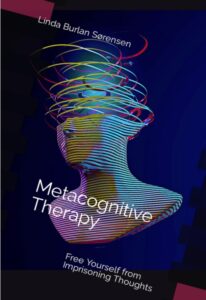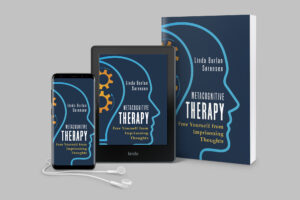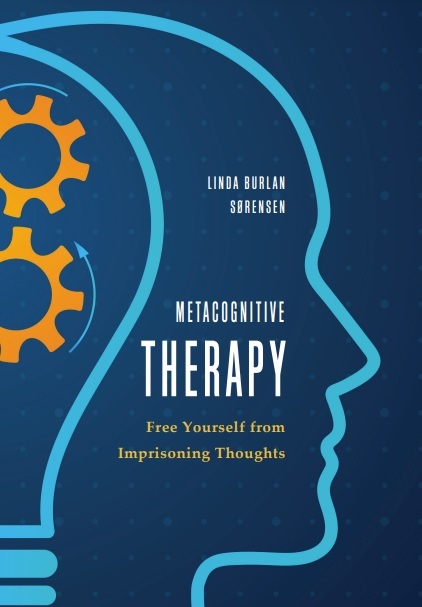Metacognitive Therapy
– Free Yourself from Imprisoning Thoughts –
Popular Danish Book: Now available in English
“Metacognitive Therapy – Free Yourself from Imprisoning Thoughts” (2023), the English translation of “Fængslende tanker,” provides the readers with access to metacognitive therapy and the opportunity to liberate themselves from constraining thought patterns.
translation of “Fængslende tanker,” provides the readers with access to metacognitive therapy and the opportunity to liberate themselves from constraining thought patterns.
Metacognitive therapy is a groundbreaking approach in psychology, emphasizing the identification and challenge of metacognitive processes that individuals employ when dealing with their thoughts and feelings. By understanding and addressing the metacognitive management systems underlying behaviour and thought patterns, individuals can break free from the cycle of anxiety, depression, and stress. Offering a comprehensive understanding and practical guidance, the book empowers readers to explore the mechanisms behind thought patterns and emotional reactions influencing their well-being.
We cannot get better by ruminating and worrying. Nevertheless, these are the strategies for many who suffer from anxiety and depression. But a wound does not heal by continuing to scratch at it. It just becomes bigger and bigger. If we spend several hours each day wondering about our gloomy thoughts, we become even more depressed and anxious, and do not thrive well psychologically.
By using cases as examples, “Metacognitive Therapy – Free Yourself from Imprisoning Thoughts” shows us how metacognitive therapy can help us manage our thought processes. At the same time, this book is also a critical voice and warning about the evaluation culture we have created. A culture where more and more people are developing anxiety and depressive disorders because we are constantly under surveillance and must fit into certain schemas. We need to learn how to think for ourselves and be aware that we can regain control over our thought processes.
“There will always be terms and conditions in our lives that hurt, which we cannot control ourselves. But there is also a lot of unnecessary psychological suffering created through our own thought processes. These thoughts are allowed to imprison us and keep us stuck in an uncomfortable place that is not pleasant to be in. We can minimize unnecessary psychological pain if we begin to focus on how we manage our thoughts instead of solely focusing on what they contain. Therefore, it is so important to disseminate the thinking behind metacognitive therapy along with the awareness that we are not our thoughts, but that thoughts are something we have.” Linda Burlan Sørensen, author
The book can be purchased, for example, on Amazon and SAXO.
The audiobook can also be found on the following links: Amazon, Audible, Spotify USA, Barnesandnoble.com; Play.google.com; Libro.fm; Storytel.com; Audiobooks.com; Scribd.com; Hoopla.com; Kobo.com.
About the Book
From the Book
” The difference between thought processes and thoughts is crucial because we will always have thoughts. We cannot simply remove them, and it certainly is not the case that we should do so. Some of my clients wish to never have certain thoughts and feelings. But this battle is lost beforehand. We cannot make a list of over 100 thoughts that we never ever want to have again, and then expect that they will never return. We can never become empty of thought.
Instead, it is obvious to think about what we can do with our thoughts when they pop up. How can we best cope with them, so that they are not running our lives, but rather, we are. Just by understanding that we cannot repress our thoughts and get a beneficial result by doing so, we have removed a large pressure from ourselves. Instead of going into our thoughts all too often to try to analyze and under¬stand them, we can choose another way, which is useful for every¬one, regardless of whether you generally feel healthy and sound, or whether you are weighed down by anxiety or depression.
Imagine that your telephone rings. How big of an influence do you have on your telephone ringing? None. But you can influence what you do with the call. You can choose to answer it. You can choose to turn off the volume. You can choose to not take the call and turn off the telephone or throw it away from you. This example functions in the same way in relation to your thoughts and feelings. You have no influence on what pops up in your thoughts and feelings. Thoughts are electrochemical impulses in our brains, and these we cannot control. But you do have an influence on what you do with your thoughts when they show up.”
About the Author 





